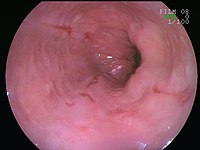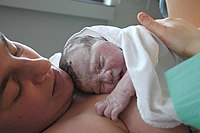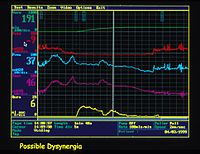
Author response to: Comment on: Systematic review of the introduction and evaluation of magnetic augmentation of the lower oesophageal sphincter for gastro‐oesophageal reflux disease
Sign Up to like & getrecommendations! Published in 2020 at "British Journal of Surgery"
DOI: 10.1002/bjs.11565
Abstract: Editor We thank Bonavina et al. for their correspondence. We are delighted they agree that a well-designed and conducted RCT to compare the effectiveness of magnetic sphincter augmentation (MSA) and anti-reflux surgery is required to… read more here.
Keywords: reflux; sphincter; augmentation; review ... See more keywords

Comment on: Systematic review of the introduction and evaluation of magnetic augmentation of the lower oesophageal sphincter for gastro‐oesophageal reflux disease
Sign Up to like & getrecommendations! Published in 2020 at "British Journal of Surgery"
DOI: 10.1002/bjs.11567
Abstract: Editor Kirkham et al.1 concluded in their review of the current evidence for magnetic sphincter augmentation (MSA) that it is ‘being used despite a lack of robust evidence for its effectiveness’. We disagree. Their study… read more here.
Keywords: introduction; sphincter; evidence; augmentation ... See more keywords

Morphology of the Upper Esophageal Sphincter or Cricopharyngeus Muscle Revisited
Sign Up to like & getrecommendations! Published in 2019 at "Clinical Anatomy"
DOI: 10.1002/ca.23506
Abstract: Histological examination of specimens from 22 donated elderly cadavers and 15 human fetuses revealed that the cricopharyngeus muscle (CPM) provided (1) posterior circular muscle fibers adjacent to the external aspect of the uppermost esophageal circular… read more here.
Keywords: muscle; esophageal sphincter; sphincter; upper esophageal ... See more keywords

Radiation therapy damages external anal sphincter and perineal muscle floor
Sign Up to like & getrecommendations! Published in 2018 at "Journal of Surgical Oncology"
DOI: 10.1002/jso.25199
Abstract: To the Editor, We were very impressed by Ihnát et al, whose analysis examined both anorectal dysfunction after radiotherapy and damages related to internal anal sphincter. Nevertheless, we believe it is important to introduce our… read more here.
Keywords: radiation therapy; anal sphincter; sphincter; floor ... See more keywords

Anal Sphincter Length as Determined by 3‐Dimensional Endoanal Ultrasound and Anal Manometry
Sign Up to like & getrecommendations! Published in 2020 at "Journal of Ultrasound in Medicine"
DOI: 10.1002/jum.15407
Abstract: The normal female external anal sphincter (EAS) is shorter anteriorly than laterally and posteriorly. Furthermore, the thickness of the very proximal part of the circular EAS is thinner than 50% of the lateral and posterior… read more here.
Keywords: sphincter length; anal sphincter; sphincter; dimensional endoanal ... See more keywords

Ultrasonographic Imaging of the Fetal Pyloric Sphincter
Sign Up to like & getrecommendations! Published in 2022 at "Journal of Ultrasound in Medicine"
DOI: 10.1002/jum.16127
Abstract: In this study, we hypothesized that the pyloric sphincter can be directly visualized by ultrasonography in the prenatal period. read more here.
Keywords: sphincter; imaging fetal; ultrasonographic imaging; fetal pyloric ... See more keywords

A novel waterjet technology for transurethral cystoscopic injection of viable cells in the urethral sphincter complex
Sign Up to like & getrecommendations! Published in 2019 at "Neurourology and Urodynamics"
DOI: 10.1002/nau.24261
Abstract: In a recent preclinical study, we noticed that injection of cells in the urethral sphincter by needle through a cystoscope under visual control frequently yielded in misplacement or loss of cells. We, therefore, investigated if… read more here.
Keywords: cells urethral; sphincter; urethral sphincter; viable cells ... See more keywords

Long‐term outcomes of artificial urinary sphincter in female patients with spina bifida
Sign Up to like & getrecommendations! Published in 2020 at "Neurourology and Urodynamics"
DOI: 10.1002/nau.24576
Abstract: To report the long‐term functional outcomes of artificial urinary sphincter (AUS) implantation in female patients with spinal dysraphism and stress urinary incontinence (SUI) related to intrinsic sphincter deficiency (ISD). read more here.
Keywords: female patients; outcomes artificial; artificial urinary; long term ... See more keywords

Botulinum toxin A injection to the external urethral sphincter for voiding dysfunction in females: A tertiary center experience
Sign Up to like & getrecommendations! Published in 2022 at "Neurourology and Urodynamics"
DOI: 10.1002/nau.25023
Abstract: The aim of this study is to examine the functional outcomes of ona‐botulinum toxin A (BTX‐A) injection into the external urethral sphincter (EUS) for female patients with nonneurogenic nonrelaxing sphincter as the underlying cause of… read more here.
Keywords: sphincter; urethral sphincter; voiding dysfunction; external urethral ... See more keywords

Long‐term results of artificial urinary sphincter implantation for urinary incontinence due to intrinsic sphincter deficiency in children
Sign Up to like & getrecommendations! Published in 2022 at "Neurourology and Urodynamics"
DOI: 10.1002/nau.25106
Abstract: To report long‐term results of artificial urinary sphincter implantation for urinary incontinence due to intrinsic sphincter deficiency in children. read more here.
Keywords: sphincter; long term; term results; results artificial ... See more keywords

Impact of sex and aging on radiographic and functional parameters of the anal sphincter complex in patients with accidental bowel leakage
Sign Up to like & getrecommendations! Published in 2023 at "Neurourology and Urodynamics"
DOI: 10.1002/nau.25151
Abstract: Treatment outcomes for accidental bowel leakage (ABL) may be influenced by age‐related sarcopenia. We sought to determine if thickness of the anal sphincter complex on endoanal ultrasound correlated with function in women and men with… read more here.
Keywords: sphincter; accidental bowel; sphincter complex; anal sphincter ... See more keywords